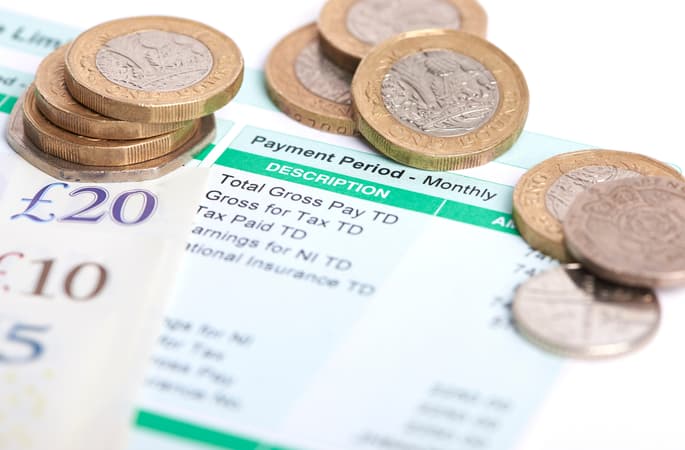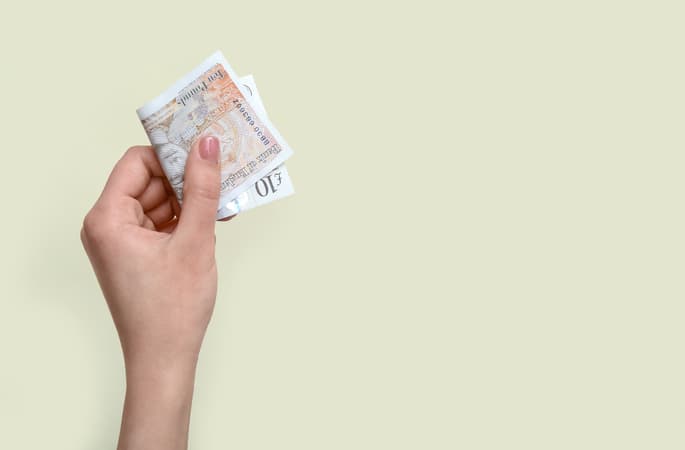Jump to a section
If you’re a small business owner who’s savvy enough to be using a business credit card for your business spending, you’re likely to have collected a good amount of these rewards. But, are you allowed to spend them on yourself?
Understanding Business Credit Card Rewards:
Business credit card reward programmes allow you to earn rewards in the same way as a personal credit card. Each credit card comes with its own unique set of rewards, but some popular options include cashback, airmiles, and gift cards.
Cashback rewards
Cashback rewards are a type of credit card reward program where cardholders earn a percentage of their purchases back as cash. For example, The Capital on Tap Business Credit Card offers 1% cashback. So, if you spend £100, you would receive £1 back as a reward. Cashback from credit cards can typically be redeemed as a credit, deposited into a bank account, or used to purchase gift cards.
Travel and airmiles rewards
Travel rewards are credit card rewards that are specifically tailored for frequent travellers. These rewards often include benefits like airline miles, hotel points, access to airport lounges, travel insurance, and other travel-related perks.
Airmiles can be redeemed for various rewards, such as free flights, hotel stays, rental cars, or merchandise. Capital on Tap Business Rewards members can redeem their The number of points or miles earned depends on the amount spent and the specific credit card program.
Gift cards and perks
Some credit card reward programs, including Capital on Tap, offer the option to redeem earned points or rewards for gift cards or merchandise. Cardholders can choose from a variety of gift cards from popular retailers or redeem their rewards for merchandise such as electronics, home goods, and clothing.
Permissibility of Using Business Credit Card Rewards for Personal Use:
When you accrue business credit card rewards, you have two options: reinvest them into the business, or spend them on yourself.
Business credit cards are specially designed for business owners, meaning that the rewards and benefits they offer are more focused on meeting the needs of businesses rather than individual consumers. These cards provide advantages that are specifically tailored to help businesses manage their expenses and improve their financial strategies and in many cases will set rules around how customers can use their rewards. The easiest way to check is to review the terms and conditions attached to the rewards, or even to directly ask the scheme provider.
There is an important distinction to be made here; whilst some business credit cards may allow you to redeem rewards for personal use, you cannot use a business credit card to pay for personal expenses. Business credit cards need to be used to pay for legitimate business purposes only. But what counts as legitimate business expenses?
Distinguishing between personal and business expenses
Let’s take a look at the breakdown between business and personal expenses, and everything you need to know to make sure you keep them separate.
Personal expenses refer to anything for personal use, but not relating to your business, such as eating out at restaurants, shopping and holidays.
Some examples that could be considered a business expense:
- Office-related costs including furniture, uniforms, cleaners, computers, and screens
- Office rent or home office expenses
- Vehicles and maintenance
- Marketing costs including online and offline advertising
- Company health or life insurance and other employee benefits
- Travel for work purposes, conferences, and client meetings
- Mobile phones, landline bills, and internet
- Business lunches, teas, and coffees
- Office socials and team bonding
- Anything else directly related to your business
Some examples that are unlikely to count as a business expense:
- Meals during personal time
- Clothing for social use
- Vehicles for personal use
- Personal travel or holiday
- Phones, computers, and electronics for personal use
- Personal errands
- Anything not directly related to your business
Best Practices for Using Business Credit Card Rewards:
Whatever you decide to do with your business credit card rewards, there are some best practices to keep in mind:
Tax implications
It is highly advisable to have a discussion with your accountant or tax professional regarding your decision about earning and utilising your rewards. It is important to be mindful that certain types of rewards may have potential tax implications and that generally the responsibility of working out any tax liability that may arise sits with the customer. Seeking guidance from a qualified professional will help ensure that you are well-informed and compliant with any relevant tax regulations.
Consult with your business partners
If you have a business partner or partners, you must consult with them about how to use your business rewards. It can be a good idea to include a special section in your operating agreement that covers important information like how the rewards will be used. By adding these details to your agreement, you set clear guidelines and promote open communication. This ensures that both you and your partner are on the same page when it comes to managing your business credit cards and making the most of the rewards they offer.
Speak to your credit card issuer
Every provider will have different rules about whether you can use business credit card rewards for personal use. To be clear about what you can and can’t use your specific rewards for, review the terms and conditions of your credit card or speak with your credit card issuer.
The bottom line
While you have the flexibility to decide how you personally will use your business credit card rewards, it is important to remember that business credit cards are only intended for business expenses. Using rewards for personal use is generally permissible, but using a business credit card to pay for personal expenses is not allowed.
Consulting with your accountant or tax professional can help you understand any potential tax implications associated with using rewards. Additionally, discussing the use of rewards with your business partners and including guidelines in your operating agreement promotes clear communication and mutual understanding.
By following best practices and being mindful of the intended purpose of business credit card rewards you can make the most of these benefits.
Start maximising your business credit card rewards today and watch your business thrive with a Capital on Tap Business Credit Card.
This does not constitute financial advice. If you want to understand how to redeem your rewards in detail, you should speak to your financial advisor or accountant.











